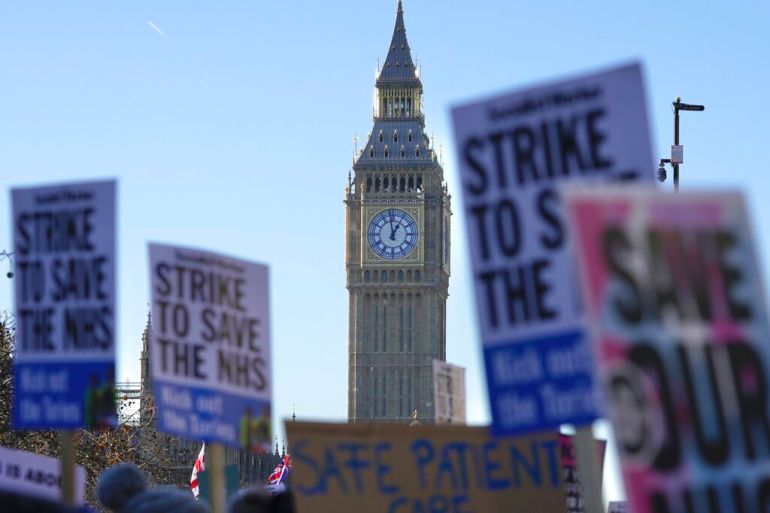
LONDON, March 13 (NNN-AGENCIES) — Junior doctors across England go on strike on Monday for three days, protesting against inadequate pay and burnout that risks driving staff out of the National Health Service (NHS) as it tackles record-high patient waiting lists.
The British Medical Association (BMA), which represents doctors and medical students, says junior doctors’ take-home pay has been cut by more than a quarter over the last 15 years, based on the Retail Price Index gauge of inflation and that its members voted overwhelmingly to strike.
Junior doctors are qualified physicians, often with several years of experience, who work under the guidance of senior doctors and comprise a large part of the country’s medical community.
The walkouts by junior doctors will put more pressure on the state-funded NHS, which is experiencing waves of strike action by nurses, ambulance workers and other staff.
The NHS said it would “prioritise resources to protect emergency and critical care, maternity care and where possible prioritise patients who have waited the longest for elective care and cancer surgery”, but thousands of appointments and procedures will be cancelled during the 72-hour strike.
Facing strikes across multiple sectors including train drivers and teachers, the government has said public sector pay restraint is needed in order to get double-digit inflation under control.
On Saturday, thousands of protesters marched through London to the British prime minister’s residence to support healthcare workers who have held a series of strikes over pay and conditions in the NHS.
A wave of strikes has continued for months as workers across the country demand pay raises to keep pace with double-digit inflation.
In addition to healthcare workers, teachers, train drivers, airport baggage handlers, border staff, driving examiners, bus drivers and postal workers have all walked off their jobs to demand higher pay.
Unions say wages, especially in the public sector, have fallen in real terms over the past decade, and a cost-of-living crisis fueled by sharply rising food and energy prices has left many struggling to pay their bills.
Britain’s annual inflation rate was 10.1 percent in January, down from a November peak of 11.1 percent but still a 40-year high. — NNN-AGENCIES




